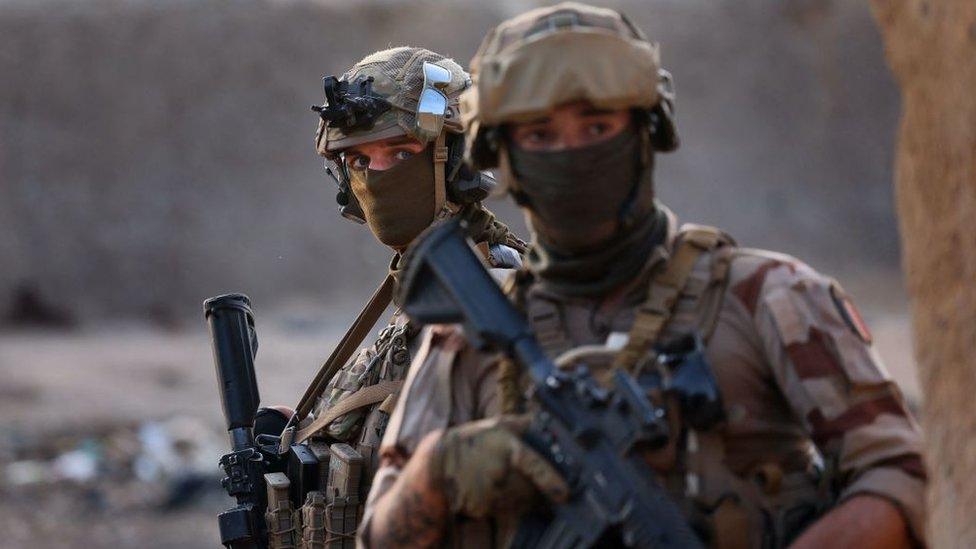France calls time on anti-jihadist Operation Barkhane in Sahel
- Published
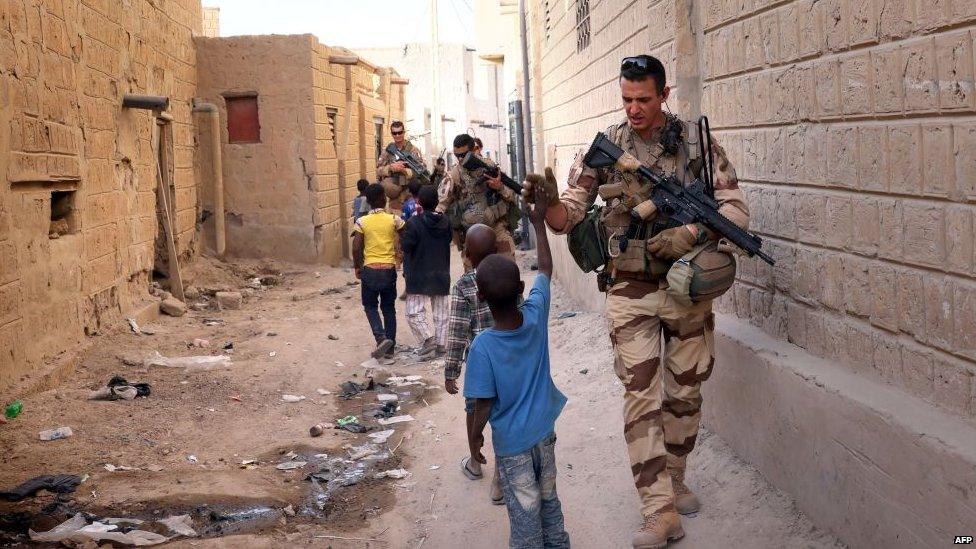
Some 5,500 French troops were deployed at the height of the jihadist insurgency
President Emmanuel Macron has formally ended France's decade-long operation to fight Islamist insurgents in the Sahel.
In a major speech at a naval base in Toulon, he said some French troops would remain in the region.
However, they would be there under new arrangements to be worked out with host countries.
At its high point, Operation Barkhane saw some 5,500 French soldiers deployed in Mali, Niger, Chad, Burkina Faso and Mauritania.
The announcement also represents a major shift in French strategic priorities, brought on by the war in Ukraine and changing perceptions of the most important threats facing the country.
In its new National Strategic Review, published to coincide with Mr Macron's speech, the defence ministry describes a "fracturing of the world order" that requires new military responses.
"This new context calls into question the current model of the French army, which was conceived in a principally expeditionary logic," it says.
"The new model for 2030 must equip France with the capacities to confront… an eventual return to high-intensity inter-state conflict, and the hybrid strategies deployed by our rivals."
While maintaining the central pillars of a nuclear deterrent and flexible conventional forces, the strategic review calls for new efforts to boost national resilience and preparedness for a shift to a war economy.
It also states that "influence" should be established as one of the key functions of the armed forces - this in recognition of the growing importance of social media in furthering or hindering national interests.
The failure of Operation Barkhane has been in large part attributed to the worsening image of France in the region of the Sahel, following disinformation campaigns believed to be financed by Russia.
The recent coup in Burkina Faso - when anti-French protesters were filmed waving Russian flags - was seen as a classic example.
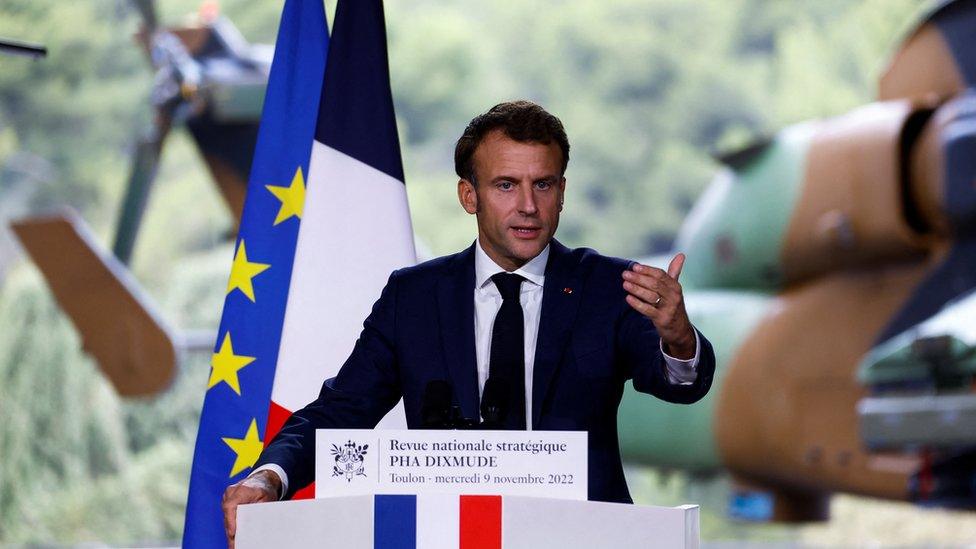
President Macron announced the withdrawal in a speech at a naval base in Toulon
"When France is there, it is accused of interference. When it is not there, it is accused of abandonment. Whatever it does, France is wrong," the veteran Africa reporter Patrick Robert wrote recently in Le Figaro.
Despite some achievements, the Barkhane campaign was effectively on hold since the 2020 coup in Mali which brought to power a military government hostile to the French presence.
In February, the French army announced its withdrawal from Mali, and the last French troops left the town of Gao on August 15.
Some 3,000 troops are now expected to remain in Niger, Chad and Burkina Faso - but they will not act independently, only in co-ordinated actions with national armies.
Significantly, this continuing deployment will have no official name, indicating that it is no longer an "external operation" as Barkhane was.
Analysts said France had little choice but to acknowledge the failure of Barkhane after the junta in Mali abruptly terminated relations.
"The initial aim was to stop the spread of jihadism in the Sahel and to forge a strong partnership with the Malian army," said Elie Tenenbaum, defence specialist at the French Institute for International Relations (IFRI)
"Today that strategic partnership is in tatters… while jihadism extends itself ever wider in the region and roots itself more deeply in society."
In his speech, Mr Macron repeated his call for European strategic autonomy , but said France would remain an "exemplary" member of Nato. He called for enhanced military co-operation with the UK and announced that a summit with Prime Minister Rishi Sunak would take place in the first months of next year.
The new strategic review also clearly designates China as an adversary of Western powers.
"The aim of the Chinese Communist Party… is to supplant the US as the primary world power. Judging American power and the Western model to be in decline, the Chinese regime believes that western leadership of the international order is fragile and that [China] can weaken it still further by using its new influence," it says.
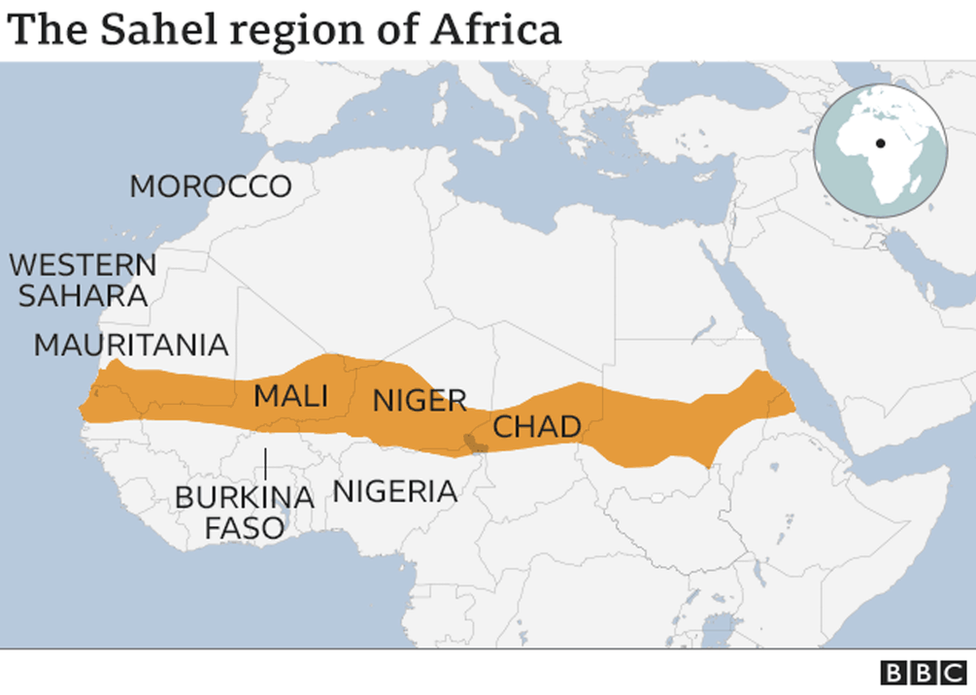
- Published30 June 2023
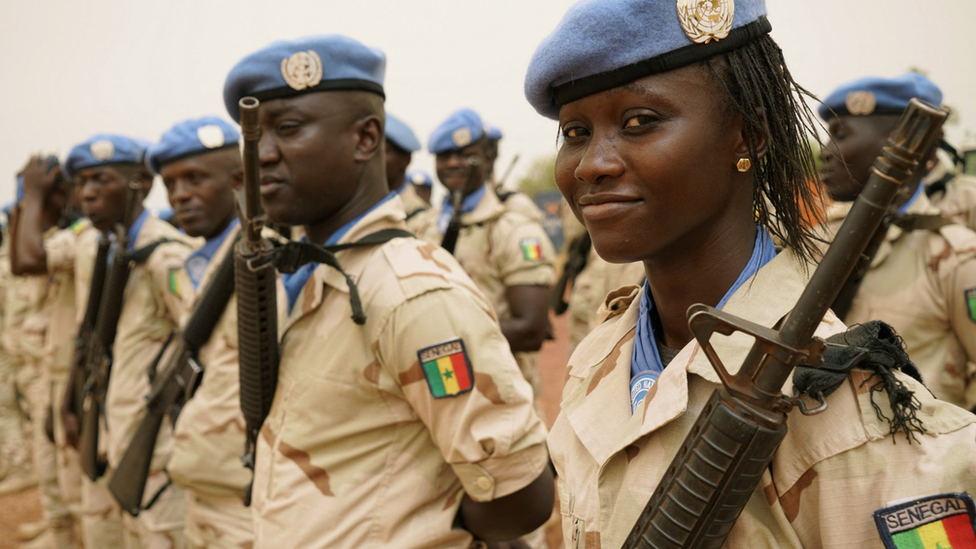
- Published17 February 2022
